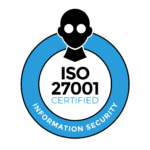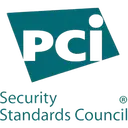Audits have a reputation problem. For many teams, they feel like a yearly fire drill: high-stakes, high-stress, and mostly about jumping through hoops to satisfy customer or regulatory demands. But what if that entire framing is wrong?
According to Leith Knafsa, Audit Managing Partner at Thoropass, teams that treat audits as transactional miss the real opportunity. “Too many organizations think the audit is just there to catch you making mistakes,” he says. “But the best outcomes happen when compliance teams treat the auditor like a strategic partner that can help them improve their security posture.”
And the results speak for themselves: stronger security programs, smoother audit cycles, and far less wasted time. We sat down with Leith to learn more about why audits are broken and how organizations can improve them. Here’s how a shift in mindset (and a few practical strategies) can change your audit from a chore into a strategic advantage.
How audits have evolved
“My first audit was all Excel spreadsheets and Word docs. Some auditors still operate that way today.”
Until very recently, audits had to be frustrating and slow. And a big part of this was the disconnect between day to day compliance operations and their audits. With modern compliance platforms and integrated audit services, audits no longer have to live in a silo. Instead, they can be woven into the day-to-day operations of your security program. This means that your team doesn’t need to rush and struggle to prepare for an audit once it arrives. They’re focusing on continuous compliance and they don’t have surprises when it’s time for an audit. That evolution opens the door for a deeper shift: one where compliance and security aren’t separate efforts.
Where audits often go off the rails
For teams stuck in the old mindset, audits can still go very wrong. In Leith’s experience, the same mistakes show up over and over again.
The most common? Treating the audit like a once-a-year event. “What usually happens is the audit shows up on the calendar, and no one’s made time for it,” Leith says. “Now everyone’s scrambling. They haven’t kept track of what’s changed, and they’re trying to pull everything together fast.”
This scramble is made worse when evidence is disorganized or spread across different systems. When evidence is stored in different places and you have tools that don’t talk to each other, everything takes longer than it should. Compliance teams waste hours going back and forth and searching for the evidence they’ll need.
Another frequent pitfall? Mismatched expectations. If your team doesn’t understand what your auditor is looking for (or what format they want the evidence in) you could waste hours resubmitting the same documentation over and over. This is one of the biggest areas that adds time and frustration to each individual audits.
What smooth audits have in common
On the flip side, the smoothest audits share one major trait: intentionality. These are teams that see the audit not as a hoop to jump through, but as a regular part of running a secure, trustworthy business. And they take their audit seriously.
Preparation is half the battle. But so is the nature of the relationship with your auditor. If you can treat your relationship with your auditor as a continuous conversation, it helps you stayc compliant all year long.
Another differentiator? The ability to integrate tooling and automation into the audit itself. Audits don’t have to be conducted in separate email threads and spreadsheets. When you have a consolidated platform that integrates with your system, evidence collection becomes as easy as a few clicks, instead of hours for each individual piece of evidence.
The strategic value of the auditor relationship
Too often, auditors are viewed as an external party looking to point out failure. But with a good audit partner and a shift in mindset, they can become a partner that helps you do your job more effectively. But that’s not how Leith approaches his role, and it’s not how a good auditor will either.
“A good auditor isn’t playing a game of ‘gotcha’. They’re trying to help you improve your program. That means offering feedback, context, and perspective that makes your security posture stronger—not just compliant.” – Leith Khanafseh, Audit Managing Partner, Thoropass
The key is engagement. When organizations treat their auditor as an extension of the team, the feedback loops become much more valuable. A report that gets checked off once a year helps you stay compliant when it comes to that framework or standard. But it doesn’t always actually improve your organization against breaches or threats. A good auditor helps you see where these threats might be, so that you can help close them for your organization.
And the best auditors tailor their assessments based on your business model, your customer profile, and your unique risks. They aren’t using a checklist that looks the same for each organization. Your auditor should take the time to understand your environment and help you scale your program to meet your individual needs.
Accelerating growth and multi-framework complexity
For growing companies, audits get more complicated fast. It’s not just SOC 2 anymore—it’s PCI, HIPAA, ISO, HITRUST, and more. You might have different business units, different systems, and different owners across each framework. That kind of sprawl can become overwhelming and make each individual audit significantly more complicated.
Teams will underestimate how long it takes to respond to audit requests when you consider how many different requests might be coming onto their plate in the next few months. And when each audit has different processes, the confusion and frustration only grows.
It’s often the case that each audit comes with its own evidence requests, formats, and documentation standards as well. That introduces duplicate work across all of your different frameworks.
Finding an audit partner who can handle multiple frameworks in a unified, streamlined way is the best way to avoid this. They take the time to understand your environment, map out the similarities across your frameworks and certifications, and help you remove duplicate work to make your audits more seamless and give you the time to focus on more strategic security initiatives.
A better audit relationship and a better audit experience
Audits will always be part of doing business. But how you approach them is entirely up to you.
When you treat audits like a one-time burden, you get chaos, cost overruns, and limited insights. But when you treat your auditor as a strategic partner, you get so much more:
- Ongoing feedback on your controls and risks
- Less rework and faster evidence cycles
- Stronger customer trust
- A compliance program that actually improves your security
“Audit and compliance don’t have to be at odds. When you partner with the right auditor—and treat that relationship like an asset—you end up with a program that’s not just audit-ready. It’s resilient, trustworthy, and built for the long term.” – Leith Khanafseh, Audit Managing Partner, Thoropass
Ready to have a smoother audit experience? Talk to an expert today.

Related Posts
Stay connected
Subscribe to receive new blog articles and updates from Thoropass in your inbox.
Want to join our team?
Help Thoropass ensure that compliance never gets in the way of innovation.













.png)